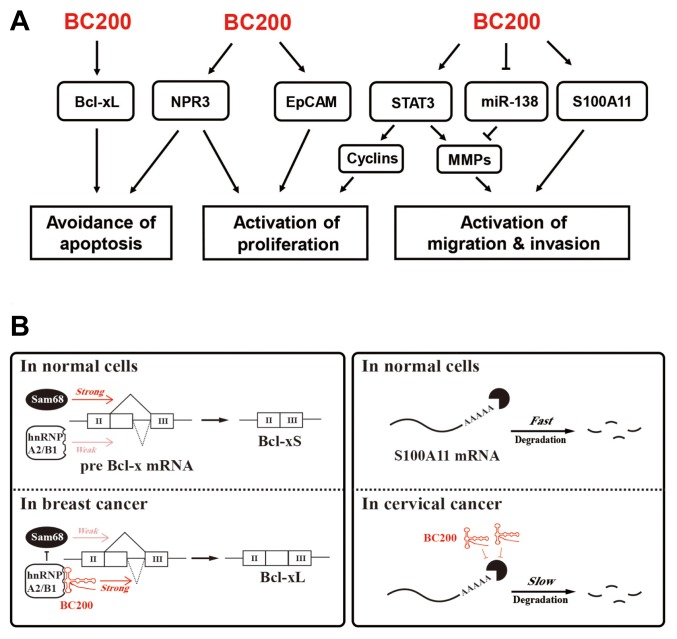Fig. 2. Involvement of BC200 RNA in the genesis and development of cancers.
(A) Diagram depicting BC200 RNA signaling involved in induction of cancer-related phenotypes. BC200 RNA shifts Bcl splicing toward production of the Bcl-xL isoform, thereby preventing apoptosis; this effect is further achieved by upregulation of NPR3. BC200 RNA promotes cell proliferation by upregulating NPR3, EpCAM, and STAT3. Activation of STAT3 or upregulation of S100A11 by BC200 RNA causes stimulation of migration and invasion. BC200 RNA inhibits synthesis of the tumor-suppressive miRNA, miR-138, resulting in activation of migration and invasion. (B) Functional mechanisms of BC200 RNA. Left: Altering the splicing pattern of Bcl-x mRNA. In the absence of BC200 RNA, Sam68 regulates the splicing of Bcl-x by interacting with its pre-mRNA, leading to expression of Bcl-xS. BC200 RNA interacts with Bcl-x pre-mRNA and facilitates recruitment of hnRNP A2/B1 to the pre-mRNA. This recruitment interferes with binding of Sam68 to the pre-mRNA and consequently changes the fate of Bcl-x splicing to generation of Bcl-xL. Right: Stabilization of S100A11 mRNA. BC200 RNA stabilizes S100A11 mRNA, possibly by binding to its mRNA.

